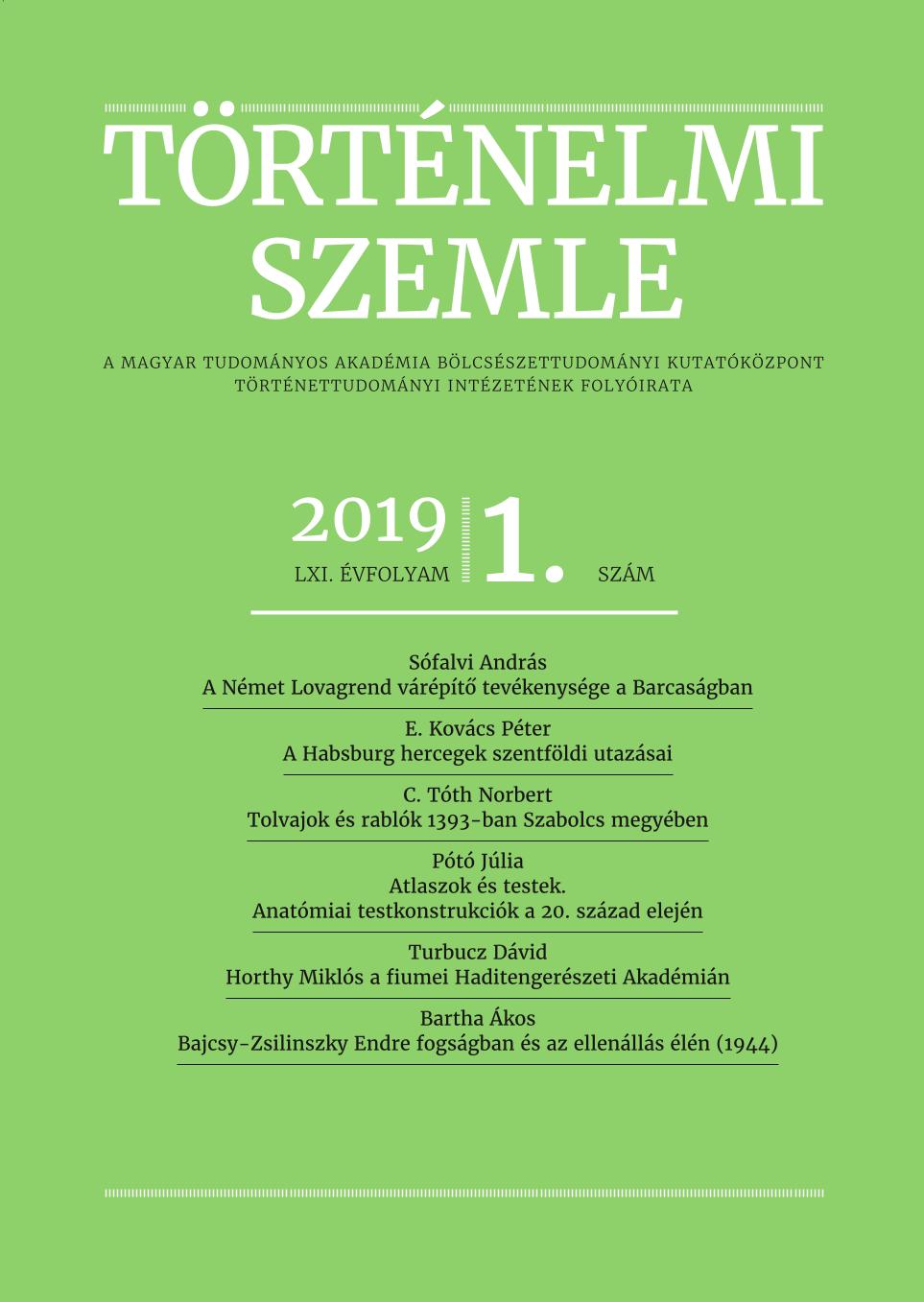Két világrendszeren átívelő vasúti vállalat, a GYSEV
A Railway Company Overarching Two World Orders, the GYSEV
Author(s): Csaba Sándor HorváthSubject(s): Interwar Period (1920 - 1939), WW II and following years (1940 - 1949), Post-War period (1950 - 1989)
Published by: Magyar Tudományos Akadémia Bölcsészettudományi Kutatóközpont Történettudományi Intézet
Keywords: GYSEV; Local Railway of Fertővidék; Iron Curtain; smuggling; defection
Summary/Abstract: The Railway Company of Győr–Sopron–Ebenfurt [GYSEV], which was established in 1876 – and also ran the Local Railway of Fertővidék – was the only private enterprise to survive both Trianon and the great wave of collectivisation that followed World War II. After the closing of the iron curtain, the company, which formally operated as a joint stock enterprise, continued to function despite the cutting of its lines. Jointly possessed by Austria and Hungary, it was a unique phenomenon, belonging to two opposing world orders and bridging them. It constituted a gap in an otherwise hermetically closed frontier, and became as such a hotbed of smuggling and defection. After the abolition of the Iron Curtain, the lines of GYSEV, originally established in accordance with the natural space structure of the Carpathian Basin, could resume functioning as originally planned – although the Local Railway of Fertővidék only between Fertőszentmiklós and Nezsider, for its operation on the Hungarian side had been suppressed in 1979.
Journal: Történelmi Szemle
- Issue Year: 2019
- Issue No: 01
- Page Range: 123-147
- Page Count: 25
- Language: Hungarian

